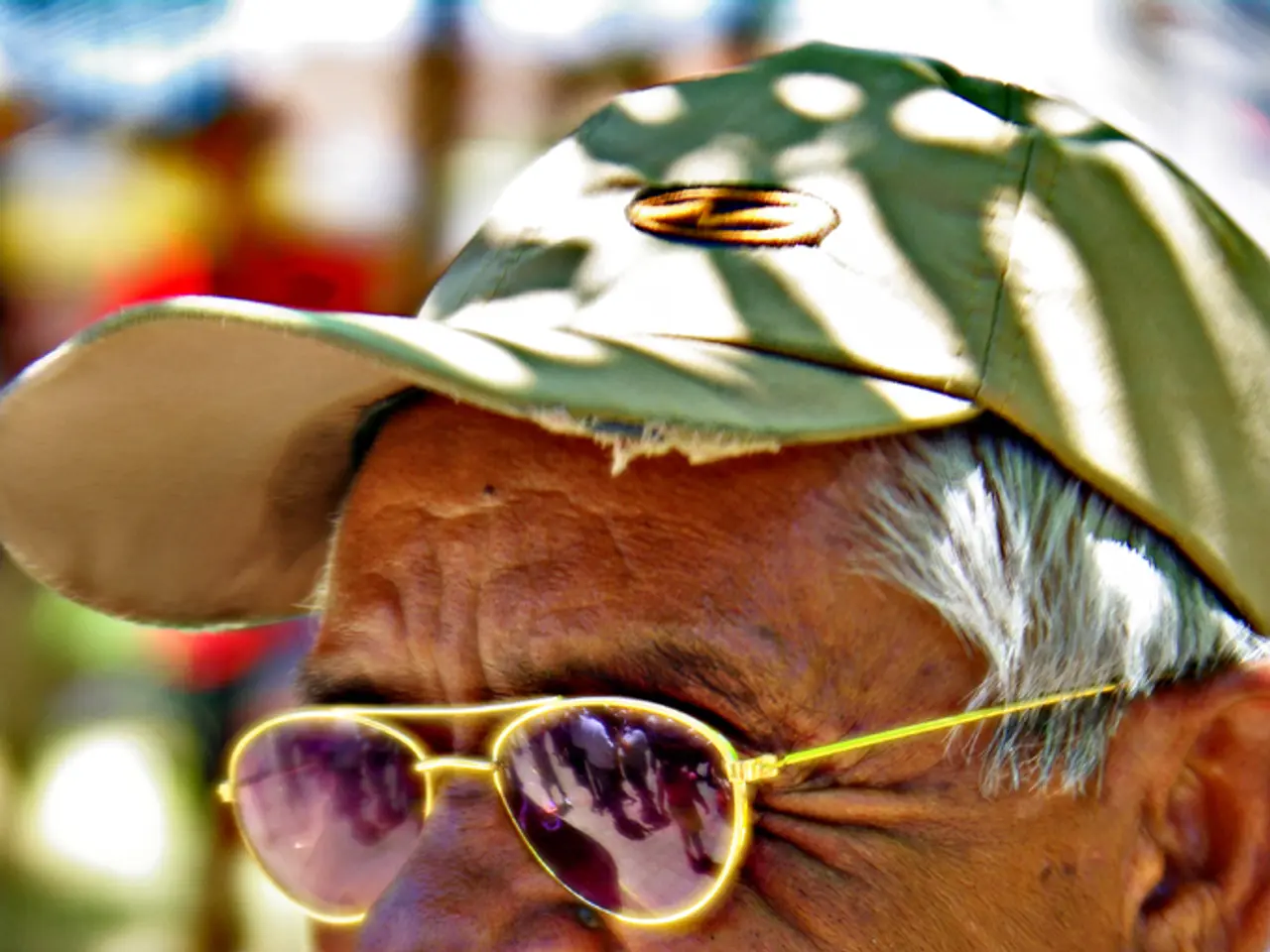Guiding Through Acne in Your 50s: A Comprehensive Approach
In the golden years of life, acne can be an unexpected and frustrating challenge. However, understanding the causes and implementing practical solutions can help manage this common skin condition.
Moisturizing is crucial for maintaining hydration in aging skin, which can help reduce the likelihood of breakouts. As we age, our skin's inflammatory response tends to chill out, making acne lesions linger stubbornly.
Acne in individuals over 50 is primarily driven by hormonal shifts related to perimenopause and menopause. These hormonal changes can increase sebum production and inflammation, causing breakouts especially around the chin, jawline, and lower face. Stress, diet, smoking, obesity, ultraviolet radiation, medications, and the use of certain cosmetics can also contribute to acne in this age group.
Recommended treatments for managing breakouts in mature skin focus on the balance between reducing inflammation, controlling sebum, and addressing hormonal influences. Topical retinoids are often recommended as they help normalize skin cell turnover, prevent clogged pores, and improve skin texture. Gentle but effective cleansing routines that do not overly strip or irritate sensitive aging skin are advised.
Hormonal treatments, such as certain oral contraceptives or anti-androgen medications, may be considered under medical supervision for hormonal acne related to menopause. Addressing lifestyle factors like stress reduction, improving diet, and avoiding irritants or pore-clogging cosmetics can help limit flare-ups. Some practitioners also emphasize supporting gut health, as gut imbalances may worsen hormonal acne.
Because mature skin can be more sensitive and prone to dryness, moisturizers suited for aging skin that do not clog pores are important. Consulting a dermatologist or healthcare provider is important to rule out underlying causes and tailor treatment for mature skin.
In the 50s, breakouts might appear as red bumps, blackheads, or whiteheads and can be scattered or concentrated in specific areas like the chin, jawline, or forehead. Dermatologists can prescribe prescription medications like topical retinoids or antibiotics to target stubborn acne. Choosing non-comedogenic skincare and makeup products can help prevent clogged pores and acne.
Low-dose systemic isotretinoin, a powerful acne-fighter, seems to be a game-changer for the more mature acne fighters. The usual acne-fighting suspects like topical retinoids and benzoyl peroxide can be too feisty for elderly skin, so gentler options like azelaic acid and sulfur preparations are often used.
Researchers investigating acne in the mature population rule out exposure to pimple-triggering substances or drugs and check for hormonal mischief-makers like androgen-secreting tumors and steroids. A study conducted by Ronnie Marks found that acne can persist into the golden years and identified three main types: persisting acne, chin acne, and sporadic acne.
Stress factors can contribute to breakouts in people in their 50s by triggering the release of certain hormones. Sharing experiences with a supportive community of seniors facing similar issues can make the journey of dealing with acne in the 50s more manageable. Avoiding touching the face can prevent the transfer of oil and bacteria, reducing the risk of breakouts.
In summary, acne over 50 is mainly driven by hormonal shifts of menopause combined with external triggers and requires a careful regimen that balances acne treatment with the needs of aging skin. Understanding the causes, identifying the signs, and implementing practical solutions can help manage acne in the 50s. Breakouts in the 50s can be uncomfortable, causing itchiness or pain, but with the right approach, they can be confidently faced and managed.
Science and health-and-wellness intertwine in managing acne in women over 50, as hormonal shifts during menopause frequently increase sebum production and inflammation, causing breakouts. Topical treatments, like retinoids, azelaic acid, and sulfur preparations, help balance sebum, reduce inflammation, and address hormonal influences in the skin-care routine for women's health. A supportive community and stress management can further aid in minimizing acne flare-ups.




